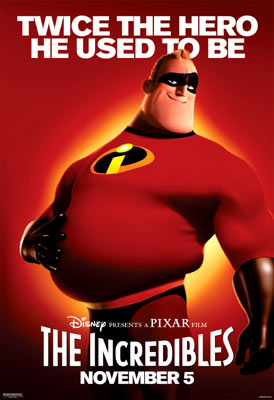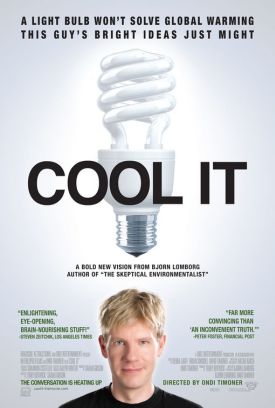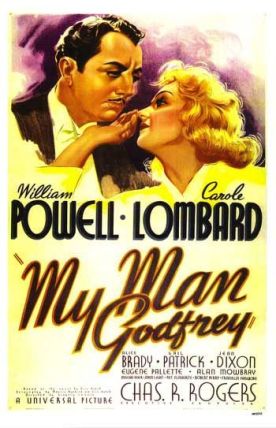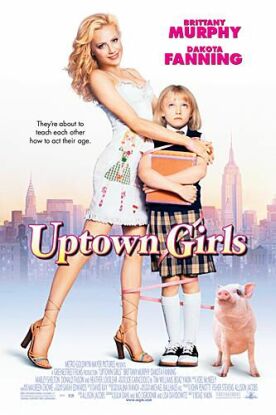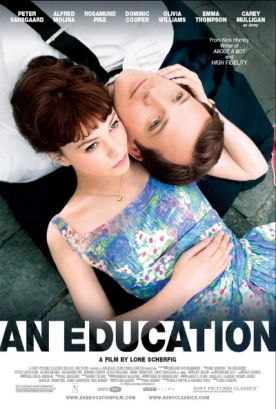Get Carter
Rachel Leigh Cook is not only beautiful but she must be the greatest actress
of her generation. How else to explain the fact that she can submit to being
told in the patented denasal tones of Sylvester Stallone that she is
“a special
girl” —and that if she forgets it
she’s going to have
“a big
problem” with him—without being
visibly creeped out? The effeminate dot.com tycoon played by Alan Cumming calls
Mr Stallone’s character, Jack Carter,
“Mr. Scary
Man,” but
he’s not half so scary when
threatening people and beating them up (as of course he does at every turn) as
he is when he is trying to be tender.
“You are so
freaky,” says the sweet but rebellious
teenager Doreen, Miss Cook’s
character, to her Uncle Jack.
“We’re
all a little freaky, Doreen,” says
Stallone, waxing philosophical.
“It’s
the straight ones you have to worry
about.”
What a very Hollywoodish idea! Carter is supposed to come from Las Vegas,
where he works for a Mr Big called Fletcher, who is only present as a voice on
the cell-phone, but he is pure Hollywood as he drives his little flock of
cinematic clichés down the narrow lane provided by Stephen
Kay’s remake of Mike
Hodges’s classic of the same name of
1971. Carter is still working at the same job he was when he was Rocky Balboa.
“People make promises, and they break
them,” he explains to his comely
niece. “My
job’s to refresh their
memory.” And you would think that
nearly a quarter-century on from Rocky he might have grown tired of
trying to make getting beaten up look poignant and artistic. No such luck. No
less a personage than Mickey Rourke is (for once) able to find a job by giving
Sly’s character a
hammering—before, of course, getting
hammered himself.
And what, in heaven’s name, is
Michael Caine doing here? His fellow-countryman, Mr Cumming, is by now in danger
of being typecast in roles like that of the giggling tycoon
( “Not to blow the proverbial horn, but
I’m worth approximately a gazillion
dollars,” he says in one of writer
David McKenna’s ideas of a witty
line), but he does them very well and may have no higher ambition than to be the
Elisha Cook Jr (you know, the little man who played one creepy coward after
another from the 1930s right through the 1970s) de nos jours. But Mr
Caine is utterly wasted in a role like that of the sinister bar-owner, Cliff
Brumby, who befriends Jack Carter but who knows far more about the death of
Carter’s late brother than he lets on.
He can do the part standing on his head, but it is not a part worth doing. He
must need the money.
It is the brother’s
death—a murder as Carter
believes—which brings him back to the
family’s home in Seattle after a
five-year absence in Vegas. Seattle proves to be the usual hell-hole of
corruption and vice, and although
Carter’s exploits create havoc in the
streets and several further murders there is not so much as a policeman to be
seen, except briefly when the home of his sister-in-law (Miranda Richardson) is
burglarized by unknown parties. In one of the
film’s concluding scenes (it could
hardly be called a climactic one) one character tells Carter that if he kills
him he will be on the run for the rest of his life, but it does not surprise us
that Carter shoots him anyway—or that he then proceeds to drive off at the end
without so much as a ray of official suspicion being directed his way. Law and
order doesn’t exist in this film. We
are meant simply to assume that the cops are bought off, I guess.
For the real problem with this picture, as with nearly every contemporary
attempt to revive the noir cinematic dramas of half a century ago, is not
just the contempt for narrative coherence but the attitude it betokens. For the
existential angst that the old movies can be made to yield up, we nowadays
substitute a merely facile cynicism. Everybody save the hero (or, in Mr
Stallone’s case, every male character)
is corrupt, vicious, violent and, in a word, despicable. Decency is quite
unknown, except as a vanished dream of the disillusioned women. The battered and
cynical hero is the nearest we get to it, but he must pick his way through the
moral minefield of this dark, dark world without so much as a hope of anything
better. In the end it is all just an excuse for Stallone or some other
narcissist to posture and to imagine that pretty young things like Miss Cook
admire him for it. The scariest thing of all is that a lot of them do too.
Discover more from James Bowman
Subscribe to get the latest posts to your email.


